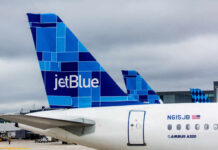
Panera Bread Company has announced its decision to discontinue the sale of its Charged Lemonade drink across all its locations in response to pending wrongful death lawsuits. A spokesperson for the company confirmed this decision on Tuesday, indicating that the move is part of a broader shift towards offering more low-caffeine beverage options.
Panera's finally discontinuing its line of Charged drinks
The company's still facing multiple lawsuits over their caffeine content
• Large Charged Lemonade: 236mg
• Recommended daily amount: 400mgStill wild that you could just get unlimited refills pic.twitter.com/vNfrSHg1zu
— Morning Brew ☕️ (@MorningBrew) May 7, 2024
The decision to phase out Charged Lemonade comes in the wake of claims linking the caffeinated beverage to two fatalities. While Panera has not explicitly stated the reason behind discontinuing the drink, it aligns with their recent efforts to revamp their beverage menu to cater to customer preferences.
“We listened to more than 30,000 guests about what they wanted from Panera, and are focusing next on the broad array of beverages we know our guests desire — ranging from exciting, on-trend flavors, to low-sugar and low-caffeine options,” remarked Panera in response to inquiries about the menu changes. Among the new offerings is a “Blueberry Lavender Lemonade.”
One lawsuit involves the case of 21-year-old Sarah Katz, a college student who tragically passed away in September 2022 after consuming a Charged Lemonade. Her family filed a lawsuit against Panera, alleging that the company failed to provide sufficient warning about the drink’s high caffeine content, which surpasses that of popular energy drinks like Red Bull and Monster Energy.
In a separate case filed in Delaware Superior Court, Dennis Brown of Fleming Island, Florida, reportedly consumed three Charged Lemonade drinks before succumbing to cardiac arrest. The lawsuits have shed light on the caffeine levels in the Charged Sips drinks, ranging from 155 to 302 milligrams, with a warning on the packaging advising against consumption by children, caffeine-sensitive individuals, pregnant or nursing women.
Panera Bread is now facing a second wrongful death lawsuit tied to its caffeinated “Charged Lemonade.”
A lawsuit, filed Monday, alleges Panera’s lemonade drink caused the death of a Florida man, Dennis Brown, 46, after he went into cardiac arrest when he left the restaurant. pic.twitter.com/bOmK5G3QUN
— Paul Kang ✡️⚖️ (@LPaulKang) December 5, 2023
Panera’s decision to discontinue Charged Lemonade underscores the company’s commitment to addressing customer concerns and adapting its offerings to meet evolving preferences. However, the lawsuits and the subsequent phase-out of the drink highlight the importance of clear labeling and transparency in the food and beverage industry.





























